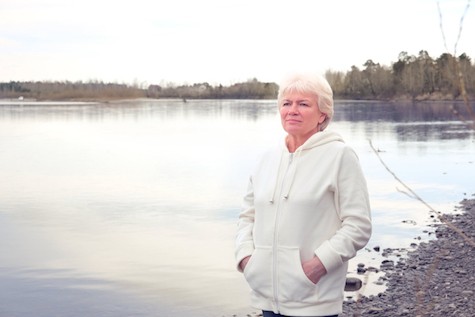Advisers should be aware of signs of elder abuse in SMSF structures

.
Louise Biti, director of Aged Care Steps, has said on the latest ASF Audits podcast that because trustees are also members of an SMSF and are the sole decision makers, many decisions and transactions can be made or influenced “behind closed doors”.
“There may be somebody else putting pressure on an older person, guiding them, telling the wrong information, having a different view and so it's that fact that there's the trustee with the control decisions behind closed doors, the potential for somebody else to influence or dictate and direct is where we can have a disaster,” Biti said.
“If you look at all the statistics around elder abuse, most of it is perpetuated by the family, the children, and very often, the children with the EPAs. There is a focus on scams and abuse by unknown parties, but far more of the problem is with the families themselves.”
Another issue that arises in SMSFs and the potential for elder abuse, she added, is when parents bring their children in as members of that fund
“Then they're [the children] going to be a trustee and have control, and they've got a very different stage of life, a different risk profile, maybe a different view and investments, wanting to take more risks,” Biti said.
“And those factors can influence a parent. We can also get imbalances in the control as well. If you know the kids are going to outnumber the parents, or the parent that's left after a death, all of those things are particularly problematic.”
Biti said many older people are reluctant to raise the issue of abuse because, as parents, they don’t want to see their children suffer any criminal outcomes.
“There's also an enormous amount of psychological abuse where there's financial abuse,” she said.
“That emotional guilt-tripping to the parents around ‘you need to help me’, or ‘if you don't help me, this is what will happen, or you'll never get to see the grandkids again’.”
Furthermore, she said, it often happens where parents are older, need support, and want the closeness of families.
“They're being threatened with losing that and so that compromises decision making as well.”
“It's hard to tell the amount of financial abuse in the community, but if you look at older people, who are generally defined as being over 65, the estimates are around about 15 per cent every year are subject to some sort of financial abuse, with a large part of that coming through from the families.”
Often, the family may not realise that what is happening is elder or financial abuse and believe it is their right or entitlement to access their parents’ funds.
“Maybe they think they know better. Sometimes it is malicious, but there are so many issues around that. The other reason why it doesn't get reported is because as well as them not wanting the kids to be in trouble, or thinking they'll just get through, there's also a sense of shame,” Biti said.
Shelley Banton, head of technical for ASF Audits, said it is important to understand the definition of elder abuse.
“A lot of the children, adult children, who may be tapping into a mum or dad's financial resources for personal gain may not actually consider that to be financial abuse,” she said.
“They're thinking that they're entitled to it. It's their inheritance, or Mum and Dad aren't using it, so I may as well get the benefit now. But in fact, that is 100 per cent the definition of elder abuse.”
Banton said other examples of elder abuse include intimidation, or getting parents or older people to approve transactions online that they wouldn’t otherwise undertake.
“There's a lot of scope for bad behavior which would otherwise just get pushed under the covers,” she said
Biti said advisers should be aware of the difference between supported decision making and substituted decision making when working with elderly clients.
“If the person has lost legal capacity and they're not able to make those legal decisions, then you need a substitute decision maker, and that is the enduring power of attorney, or somebody with financial management orders granted to them,” she said.
“But even in those cases, we believe you shouldn't totally exclude the person at the centre of the situation, or the older person, because even though they may not have the legal capacity, they still have a right to be consulted. They still have a right to be heard, to try to understand to the best of their capabilities what they want to do and how they'd like to do it.”
Keeli Cambourne
March 31 2025
smsfadviser.com

